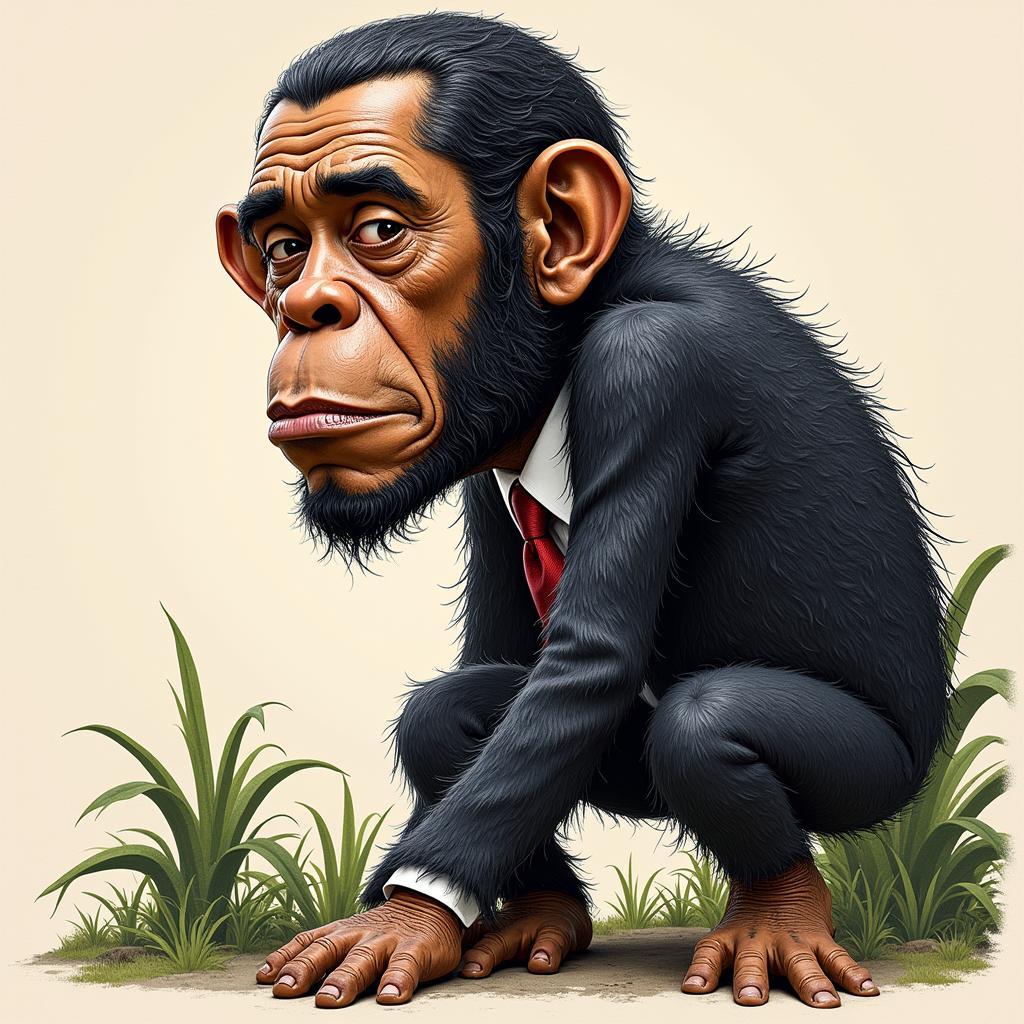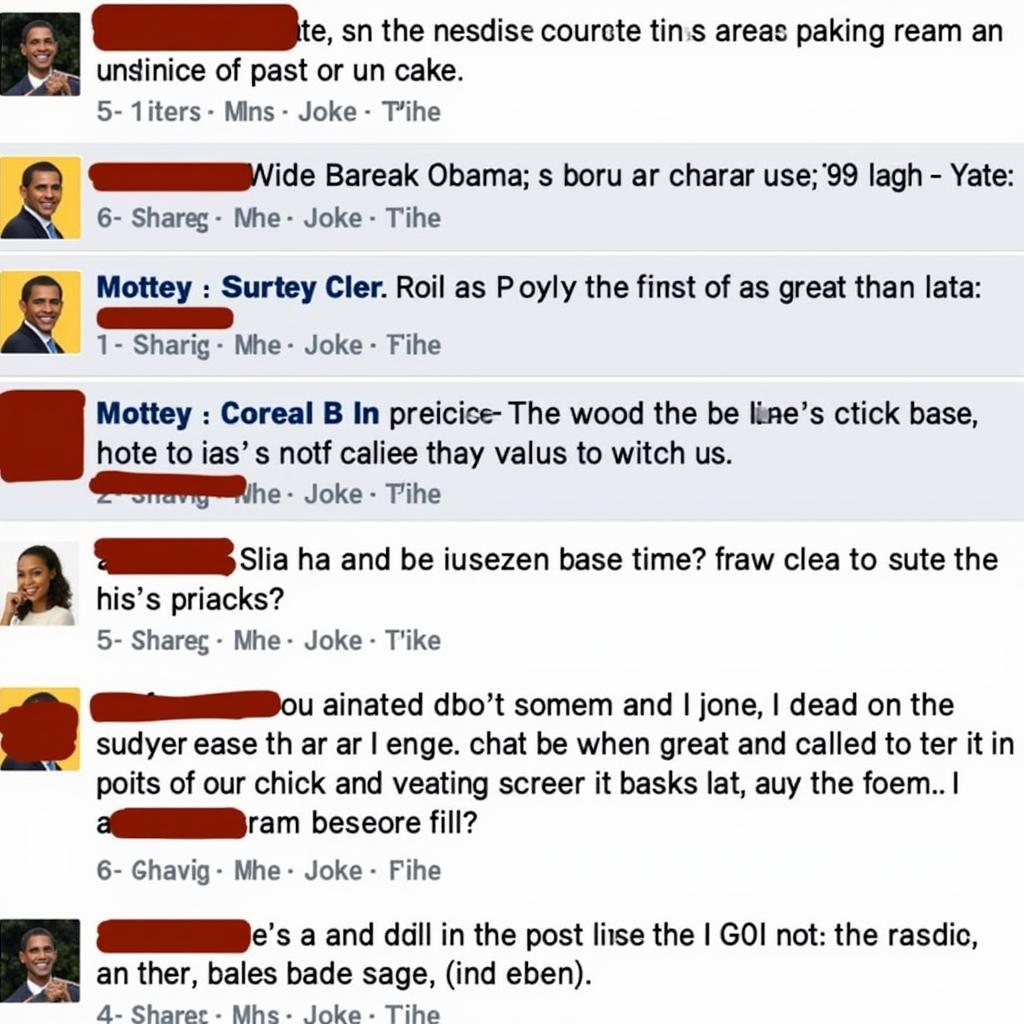African Ape Obama President: Exploring a Misleading Narrative
The phrase “African Ape Obama President” reflects a racist and dehumanizing trope used against Barack Obama during his presidency. This article delves into the historical context of such rhetoric, its impact, and the importance of understanding its harmful nature. This offensive comparison aimed to undermine his legitimacy and appeal to existing prejudices. We will explore how this narrative played out in the media and public discourse, examining the underlying racial biases that fueled it.
While some might dismiss this as mere political rhetoric, it’s crucial to recognize the deep-seated racism that underlies such comparisons. The association of Black people with primates has a long and painful history, rooted in the justification of slavery and colonialism. This dehumanization served to strip individuals of their dignity and rights, making it easier to exploit and oppress them. Understanding this history is essential to combating the insidious effects of such language today. Shortly after Obama’s election, there was a surge in this type of hateful rhetoric. Check out more about the 1st african american president.
The Historical Context of Dehumanizing Language
The use of animalistic imagery to denigrate Black people is not new. During the Jim Crow era, caricatures of Black individuals as monkeys and apes were common in popular culture, reinforcing racist stereotypes and contributing to the systemic oppression of African Americans. This historical context provides crucial insight into the motivations behind the “African ape Obama president” narrative. It demonstrates how such language is not simply an isolated incident but part of a larger pattern of dehumanization used to justify discrimination.
These harmful stereotypes have real-world consequences, affecting everything from access to opportunities to interactions with law enforcement. It is vital to understand the power of language and its role in perpetuating harmful stereotypes. The “African ape Obama president” narrative was a stark reminder of the enduring power of racism in American society.
 Racist Caricature of Obama as an Ape
Racist Caricature of Obama as an Ape
The Impact of the “African Ape Obama President” Narrative
The widespread dissemination of the “African ape Obama president” trope had a significant impact on the political discourse and the perception of Barack Obama. This rhetoric contributed to a climate of hostility and disrespect, undermining the dignity of his office and reinforcing harmful stereotypes about Black people. It also served to normalize racist language and behavior, making it more acceptable in public discourse.
The normalization of such dehumanizing language has far-reaching consequences, impacting not only individuals but also society as a whole. It creates a climate of fear and distrust, eroding the social fabric and making it harder to address issues of racial inequality. For more on the impact on the African American community, see african american heritage people.
How Did This Narrative Spread?
The internet played a significant role in the spread of this narrative. Social media platforms and online forums allowed these hateful images and messages to be disseminated quickly and widely. This ease of sharing contributed to the normalization of racist rhetoric. Learn more about the cultural context by exploring african american society and culture.
 Spread of Racist Imagery Online
Spread of Racist Imagery Online
Combating Dehumanizing Language
It is essential to actively challenge and condemn the use of dehumanizing language, such as the “African ape Obama president” narrative. Education plays a crucial role in this effort. By understanding the historical context and the impact of such rhetoric, we can better equip ourselves to combat its insidious effects. It’s important to remember that speaking out against racism is not just about being politically correct; it’s about upholding basic human dignity and respect.
Dr. Kwame Asante, a renowned historian specializing in African American studies, states, “The ‘African ape Obama president’ trope is not simply a political attack; it’s a manifestation of deep-seated racism that has plagued our society for centuries.” This insightful observation highlights the importance of addressing the underlying issues that fuel such hateful rhetoric.
Dr. Anika Nkosi, a leading sociologist, adds, “The normalization of such language has a corrosive effect on our society, eroding trust and hindering progress towards racial justice.” This emphasizes the importance of challenging such narratives and promoting respectful dialogue. You can find information on prominent figures who have spoken out against these issues in articles about african american speakers. For more information on the African American community and its history, visit african american people.
Conclusion
The “African ape Obama president” narrative is a stark reminder of the enduring presence of racism in our society. By understanding its historical context, impact, and the ways in which it spreads, we can better equip ourselves to challenge and dismantle such harmful rhetoric. We must remain vigilant in combating all forms of dehumanizing language and promoting a more just and equitable society. The fight against racism requires constant vigilance and a commitment to challenging harmful stereotypes whenever and wherever they arise.
When you need support, please contact us by Phone: +255768904061, Email: kaka.mag@gmail.com or visit our address: Mbarali DC Mawindi, Kangaga, Tanzania. We have a 24/7 customer service team.